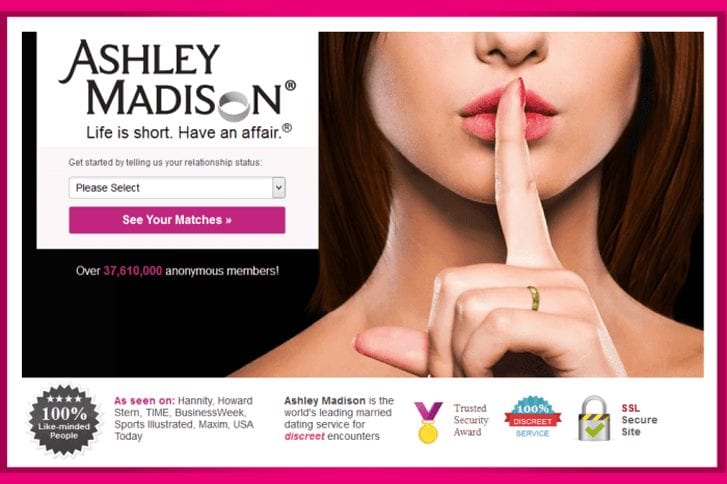The intimate private details of over 32 million Avid Life Media customers are at risk after the company was hacked. The company runs a number of dating sites including Ashley Madison which is a popular site for married couples and others in established relationships to hook up and have an affair. The recent revelation that Ashley Madison was hacked has placed their users at risk. The hackers demanded that Avid Life Media shut down a number of sites. Otherwise they were threatening to share member profiles, conversations, photos, credit card info, and more. A massive invasion of privacy. They followed through on that threat in the middle of August, exposing millions of Ashley Madison customers.

At first glance you may think ‘good for them, the cheaters are getting what they deserve’. Perhaps but consider that you could be caught up in the next round of hacks. Is there anything in your life you would rather not share with the world? If the answer is yes then you might want to reconsider your opinion. We’re not proposing that you cheer on cheaters, but rather that you think about the bigger picture. We live in a world where our private details are held electronically. Everything from your medical records and financial transactions to very private details about your life are available in a database somewhere.
What can you do to protect your personal information? I wish we could just wave a magic wand and protect your data but it’s far more complicated than that. Protecting our personal privacy has become a societal issue. We all live in a world where technology is outpacing everything else. That can be great at times but can also bring risks. We need to ensure that security is built into products and services moving forward. Up until now security has been more of an afterthought. That’s not to bash coders as I know most developers are already overworked. Instead companies need to consider the alternatives to focusing of security. The Ashley Madison hack is a good example of what can happen otherwise.
Here is a crash course in helping protect your privacy online:
- Use individual complex passwords for each website
- Use multi-factor authentication whenever possible
- Keep your data and communications encrypted
- Consider a VPN, encrypted email, and messaging
- Keep your antivirus program up to date
I’d like to tell you that doing all those things will keep your personal information safe but as the Ashley Madison hack shows it doesn’t ensure your privacy. If a hacker gains access to a network that doesn’t properly secure your information it is still at risk. Even if you took all the precautions listed above. That’s why I say this is a societal issue. We need to plan for the future rather than continue to cover the ‘hack of the week’ or perhaps ‘hack of the day’ going forward. The numbers will only grow if we don’t work together on a solution.
There are a number of organizations working to make our lives better and safer online. You can see a couple of the ones we support below. I suggest you join us in supporting groups like the Electronic Frontier Foundation (EFF) and in spreading the word. Perhaps the most important step we can all take it to vote with our wallets. We can choose to support companies that take our privacy seriously.
